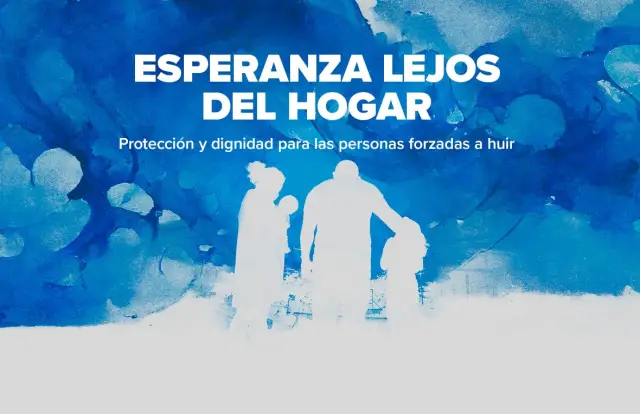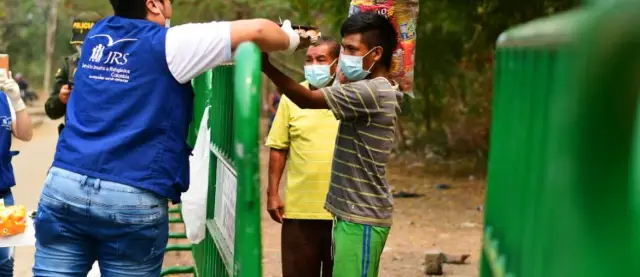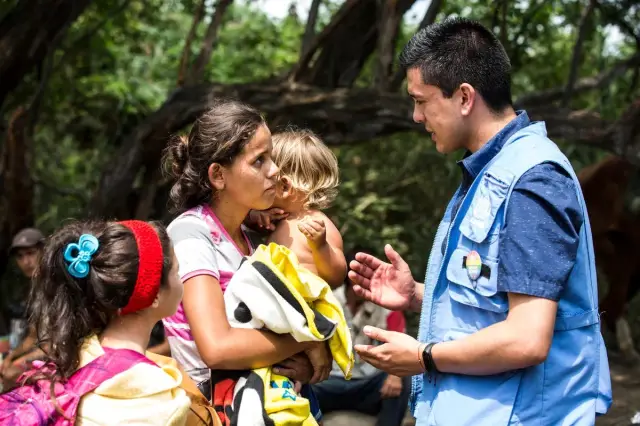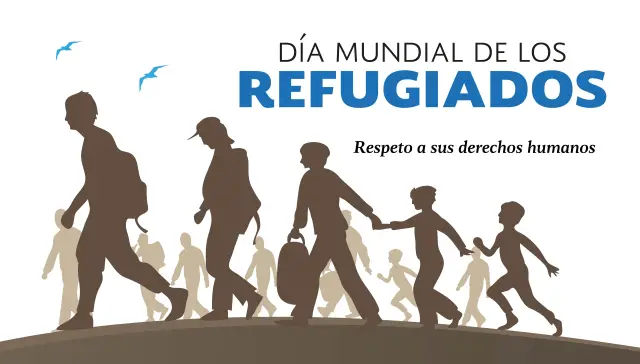Every June 20th, World Refugee Day is commemorated, a date proclaimed by the UN to honor the strength and resilience of those forced to flee their countries due to conflict, persecution, or human rights violations. In the case of Colombia , the issue takes on a particular meaning: the country has gone from being a nation that sends displaced people to becoming a host country, especially for Venezuelan citizens seeking protection and stability. Understanding this context is essential to building a more empathetic and inclusive society. In this article, we explore the current situation of refugees in Colombia, their main challenges, and the institutional and community efforts to provide them with support and hope.
What is World Refugee Day?
World Refugee Day was established by the United Nations General Assembly in 2000. It aims to recognize the rights, needs, and dreams of refugees around the world.
Why is it celebrated on June 20th?
The date was chosen to commemorate the entry into force of the 1951 Convention Relating to the Status of Refugees, the cornerstone of international refugee law.
Global Issues in 2025
This year, UNHCR's proposed theme is "Hope Far From Home," emphasizing the need to integrate refugees into safe communities, with opportunities to rebuild their lives.

The reality of refuge in Colombia
Colombia plays a complex role in the migration phenomenon: in addition to having a long history of internal displacement, it is also a recipient of forced migrants, mostly Venezuelans.
Key figures in Colombia
More than 2.9 million Venezuelans have arrived in Colombia since 2015, according to Migración Colombia.
More than 55,000 people have formally requested asylum in Colombia.
Colombia is also home to refugees from other countries such as Haiti, Syria, and African countries.
What does it mean to be a refugee in Colombia?
According to Decree 1067 of 2015, a refugee is considered to be someone who flees persecution, armed conflict, widespread violence, or massive human rights violations for well-founded reasons.
Main challenges facing refugees in Colombia
1. Access to rights and services
Despite policies such as Temporary Protection Status , many refugees face barriers to accessing healthcare, education, and formal employment.
2. Xenophobia and discrimination
Phenomena such as stigmatization affect social integration, especially in border cities or those with a high presence of migrant populations.
3. Economic vulnerability
Many refugees live in poverty, working in the informal sector or without family support networks.

Support actions and public policies
Temporary Protection Statute for Venezuelan Migrants (ETPV)
Implemented in 2021, this instrument has been internationally recognized as a model for humanitarian response. It allows migrants to regularize their status for 10 years.
Support from international organizations
Organizations such as UNHCR, IOM, and the Red Cross have established legal assistance, shelter, mental health, and food support programs in different regions of the country.
Local initiatives
Bogotá, Medellín, and Barranquilla have promoted job inclusion and entrepreneurship programs for refugees.
Colombian NGOs develop community activities to promote social and cultural integration.
What Colombia can learn from the world
International good practices
Canada and Germany offer community sponsorship programs that could be adapted to the Colombian context.
Chile and Brazil have developed humanitarian visas that complement refugee status.
Recommendations to strengthen the response
Greater investment in social infrastructure.
Strengthen regularization and integration processes with a differential approach.
Awareness campaigns against xenophobia.

What can you do?
Inform yourself and share verified content on the topic.
Support local NGOs working with refugees.
Participate in June 20th commemorative events .
Offer employment, housing, or mentoring if you have the opportunity.
For a supportive and committed Colombia
World Refugee Day invites us to look beyond the numbers and understand the human stories behind each person seeking protection. In Colombia, civic and institutional commitment has proven to be key to offering real opportunities for integration. Although significant challenges remain, the country is moving toward a more humane and supportive vision, in which refuge becomes not only a right, but an opportunity for reconstruction and hope. It is time to join forces, take action, and build together an environment of welcome and respect.
Frequently Asked Questions (FAQ)
What is the difference between a refugee and a migrant?
Refugees flee due to persecution or conflict; migrants move for economic or family reasons.
Does Colombia officially grant asylum?
Yes. Asylum procedures exist, and the country has also implemented Temporary Protection Status.
Where can I support refugees in Colombia?
You can collaborate with organizations such as UNHCR, HIAS Colombia, the Juntos Se Puede Foundation, and many other local NGOs.
What rights does a refugee have in Colombia?
Access to health care, education, protection against forced refoulement, and the possibility of regular employment.
How has the Venezuelan crisis affected the refugee situation in Colombia?
The flow of people in need of international protection has increased significantly.
